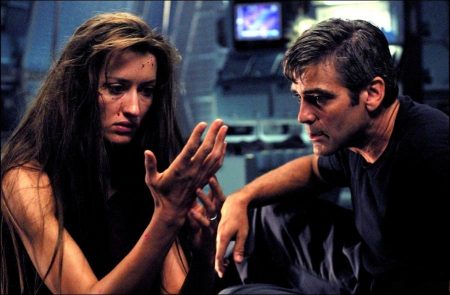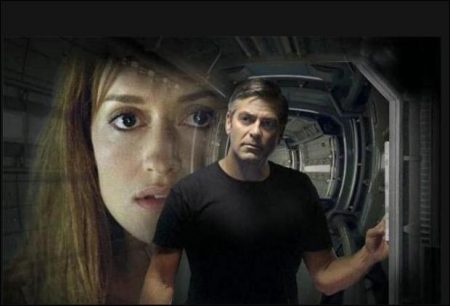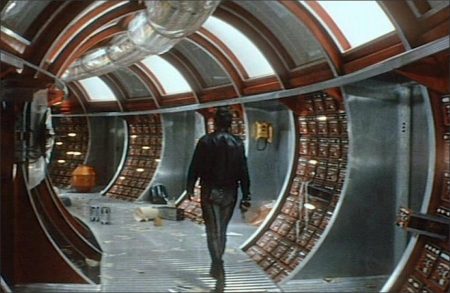Taglines: There are some places man is not ready to go.
Solaris movie storyline. Dr. Gibarian, part of a team at a space station studying Solaris, makes an urgent and self-described bizarre video request to his friend, civilian psychiatrist Dr. Chris Kelvin, to come to the station to deal with an unspecified phenomenon aboard, that phenomenon with which Chris’ experience and background may be able to explain and solve. Chris learns that his trip is sanctioned by the space program as a security force had been sent to the station to investigate, that security team which is now missing.
When Chris arrives at the station, he finds only two surviving team members, Drs. Gordon and Snow (Dr. Gibarian committed suicide), who are both acting nervously. Chris also finds two unexpected people there, the first, who Chris only sees fleetingly, being Dr. Gibarian’s adolescent son Michael, and the second being Chris’ deceased wife, Rheya. Chris and Rheya had a passionate relationship in all its good and bad before she committed suicide.
Apparently, these appearances of loved ones of the crew at the station are what Chris has come to investigate. As Chris, Gordon and Snow discuss and argue about what to do, Chris becomes emotionally invested in this vision of his wife, who herself begins to realize she looks like Rheya, acts like Rheya (including having the same feelings for Chris), answers to the name Rheya, but is not really the Rheya that was once Chris’ wife.
Solaris is a 2002 American science fiction drama film written and directed by Steven Soderbergh, produced by James Cameron and Jon Landau, and starring George Clooney and Natascha McElhone. It is based on the 1961 science fiction novel of the same name by writer Stanisław Lem.
Reflecting on Andrei Tarkovsky’s critically acclaimed 1972 film Solaris (which was itself preceded by a 1968 Soviet TV film), Soderbergh promised to be closer in spirit to Lem’s novel. The film is set almost entirely on a space station orbiting the planet Solaris, adding flashbacks to the previous experiences of its main characters on Earth. Clooney’s character struggles with the questions of Solaris’ motivation, his beliefs and memories, and reconciling what was lost with an opportunity for a second chance.
Released on November 29, 2002, Solaris grossed $14,973,382 at the North American box office and $15,029,376 in other territories, against an estimated $47 million budget.[2] Because of the film’s poor box office, blame was placed on its marketing campaign that was a challenge from the beginning as Soderbergh expressed on the film’s commentary track.[14] Clooney stated that the film’s “trailers and commercials [had] nothing to do with the film,” depicting more of a science fiction love story (or thriller).
Solaris (2002)
Directed by: Steven Soderbergh
Starring: George Clooney, Natascha McElhone, Jeremy Davies, Viola Davis, Ulrich Tukur, John Cho, Morgan Rusler, Lauren Cohn, Shane Skelton, Elpidia Carrillo, Kent Faulcon
Screenplay by: Steven Soderbergh
Production Design by: Philip Messina
Cinematography by: Steven Soderbergh
Film Editing by: Mary Ann Bernard
costume Design by: Milena Canonero
Set Decoration by: Mike Malone, Kristen Toscano Messina
Art Direction by: Steve Arnold, Keith P. Cunningham
Music by: Cliff Martinez
MPAA Rating: PG-13 on appeal for sexuality/nudity, brief language and thematic elements.
Distributed by: 20th Century Fox
Release Date: November 27, 2002
Views: 228






